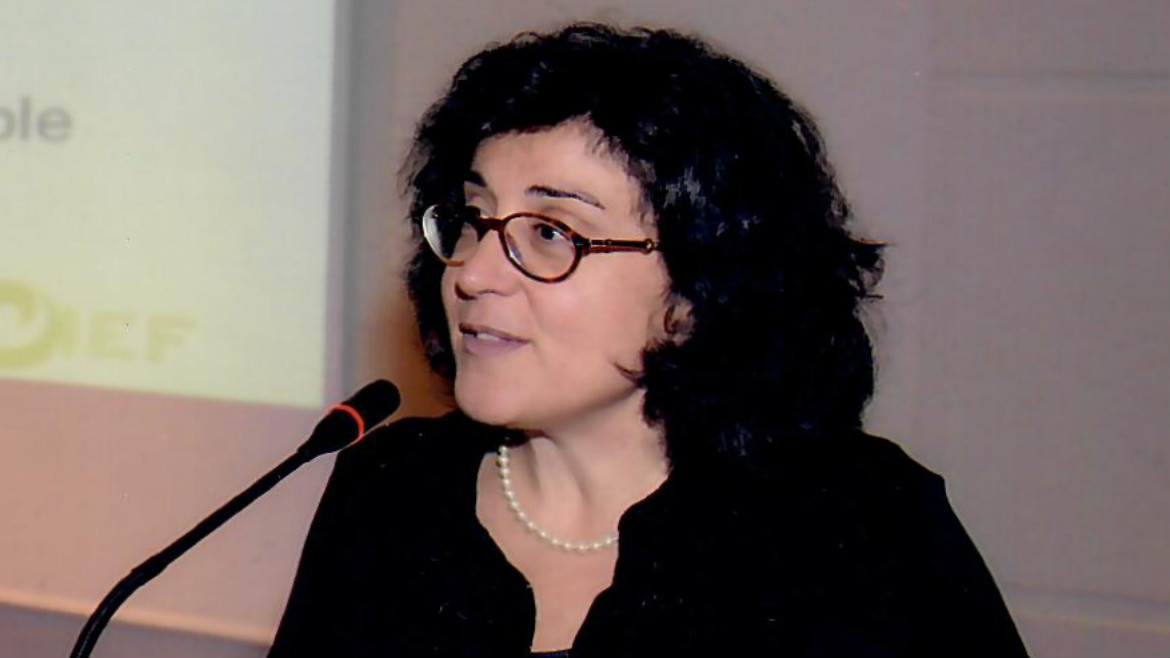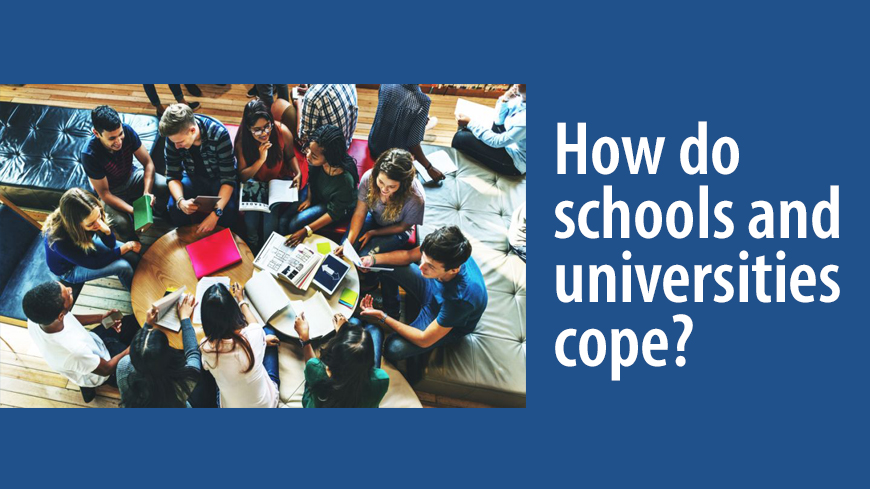Interview with Despina Syrri, Director of the Civic school of Political Studies in Greece

Despina Syrri is the founder of the Symβiosis-School of Political Studies in Greece, affiliated to the Council of Europe Network of Schools of Political Studies. Ms Syrri served as Education Specialist at the UNICEF Refugee and Migrant response in Greece, Advisor to the Regional Cooperation Council Political department in Sarajevo and Senior Expert on the Roma Integration 2020 in Belgrade. She has been a visiting fellow at the Amsterdam Centre for Holocaust and Genocide Studies, and director of research and international cooperation at the Immigration Policy Institute in Greece.
She also worked, amongst others, with Reuters and Athens News, the Berlin Migration Netzwerk, Oxford Refugee Studies Centre and British Council on intercultural education, human rights, migration, refugees, borders and the integration of the Western Balkans to the European Union. She has cooperated with the OSCE/ODHIR, Council of Europe and EU Fundamental Rights Agency. Ms Syrri taught Political Science and Political Anthropology at the American College of Thessaloniki. She has published journal articles and book chapters in Greek, South Slavic and English, and authored research papers and documentaries.
Could you please introduce your organization?
The School of Political Studies in Greece was established by Symβiosis and the Council of Europe in 2014 with the purpose of fostering the exchange of ideas and knowledge and to stimulate co-operation and dialogue among civil society, policy makers, experts, politicians and the media. This has also involved working with the general public.
Symβiosis was founded in May 2011 in Thessaloniki, drawing upon collaboration in education, rights and non-discrimination since 2003 in the Balkans. Grounded in the need for global civics, citizenship, social inclusion, and political participation, we have always worked with the public towards democratic participation in political processes, free of discrimination and exclusion, and on developing civic awareness of institutional practices regarding rights. Always based on the premise that practising human rights protection is as important as implementation of the rule of law, Symβiosis focuses on information and education, freedom of expression, documentation and analysis, public debate and active civic participation.
How has the COVID-19 crisis affected your organisation?
Our education work is based on interactive seminars and lectures; in the School we organise 3 four-day seminars per year. The selected participants also have the chance of communicating with each other between the seminars. The culmination is participation in the World Democracy Forum in Strasbourg every year.
This year, due to the restrictions, our first seminar had to be carried out online. This was an innovative digital learning pilot, expedited by the changing and strenuous circumstances. We decided that the Seminar would discuss in depth and analyse the core issues on which our School’s whole network and very intensive programme is based on: the rule of law, human rights, equality and democracy/non-discrimination in Europe, interculturalism, diversity, with a special focus on the strengths of our School in Greece, namely social inclusion and migration. The presentations and the discussions involved some of the best university professors in Greece in the fields of Law, Politics and Intercultural Education.
The response has really been unprecedented. Our cohorts are usually composed of 25 selected participants coming from policy making, experts, civil society and the media. This year we have reached out to a total number of 125 people who participated in the webinars.
For a total of 11 sessions, we had 51 questions. Interestingly, we had a few participants from the US, the Netherlands, Germany, Cyprus, Spain and the UK. We assume that since the webinars we held were in the Greek language, they were part of the Greek diaspora and students abroad. This is the kind of outreach we have never had before. In addition, we had a number of migrants, refugees and Roma participants, which shows the significant potential that exists in such digital learning for the Schools of Political Studies.
Transforming seminars into webinars was not simple; we had to add an IT professional specialised in digital learning to our team. However, the actual experience of organising seminars and working with the public and with the participants very closely didn’t change. The core of our work, our mission, didn’t change.
Do you foresee any changes in your School and in the Council of Europe’s network of Schools of Political Studies in the future?
We are moving to a rather different situation and changes are very important.
How do we take it forward, how do we best serve change while upholding the mission of educating leaders for better societies, democracy and human rights? That’s the core question we have to answer and all our schools will be answering this together with the Secretary-General of the Council of Europe.
Do we make webinars public, for example, and available to everyone on the internet? They are by all means a very high-quality resource. But how does this affect our work as Schools and with the Council of Europe? Who will be our future participants? In a global world of abundance of digital learning, do we become just one other competitor? Would the Schools, from the point of view of their identity and mission, survive in partnership and cooperation with higher education institutions which have much greater resources? What is our added value in this current conjecture?
Other questions that arise are: should the Schools continue operating only in the national languages? In my view, our potential, knowledge and impact are so much wider than that. Audiences are so much more globalised, while our mission is to strengthen the cosmopolitan understanding of democratic leaders who are often inward looking and rather constricted in today’s Europe of increased nationalism and at a time when inter-governmentalism and multilateralism are on the retreat.
Most importantly, how do we preserve the true value of the Schools, educating future leaders on democracy within the agonistic conjecture of politics? We do not teach political science. Our mission is to contribute to increased competences for democratic policy making and in respect of human rights and the rule of law. The School participants are politicians and policy makers, but also activists, investigative journalists, educators, leaders of marginalised communities. Would some of our participants be able to lead a movement such as “Black Lives Matter” in Europe? This is just one of the questions that arises.
We have been using different Council of Europe resources, such as the LIAM (Linguistic Integration of Adult Migrants and Refugees) toolkits and the Reference Framework of Competences for Democratic Culture, which we found extremely useful. We have also found the guidance from the Council of Europe on the impact of Covid-19 on human rights, gender violence, the environment extremely valuable, all of which is on the website. But much more dissemination, much more public work is needed.



